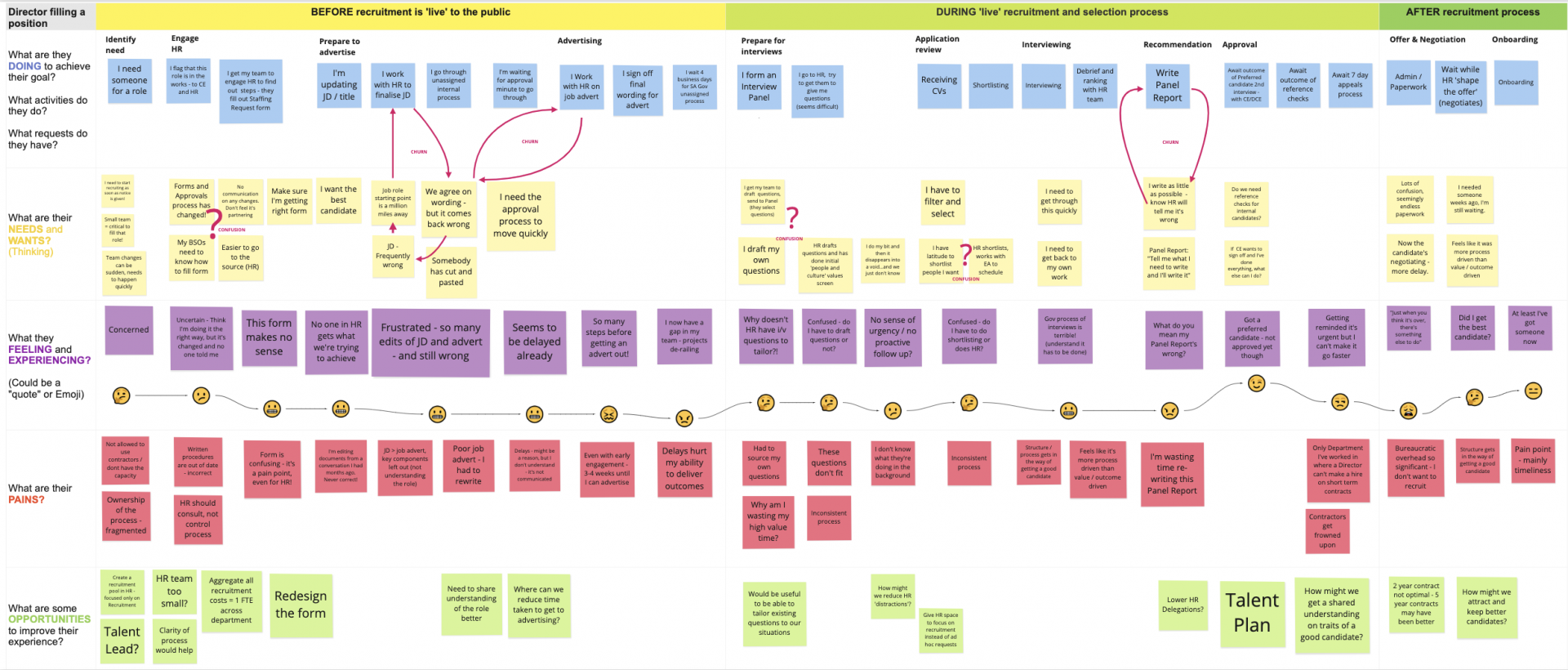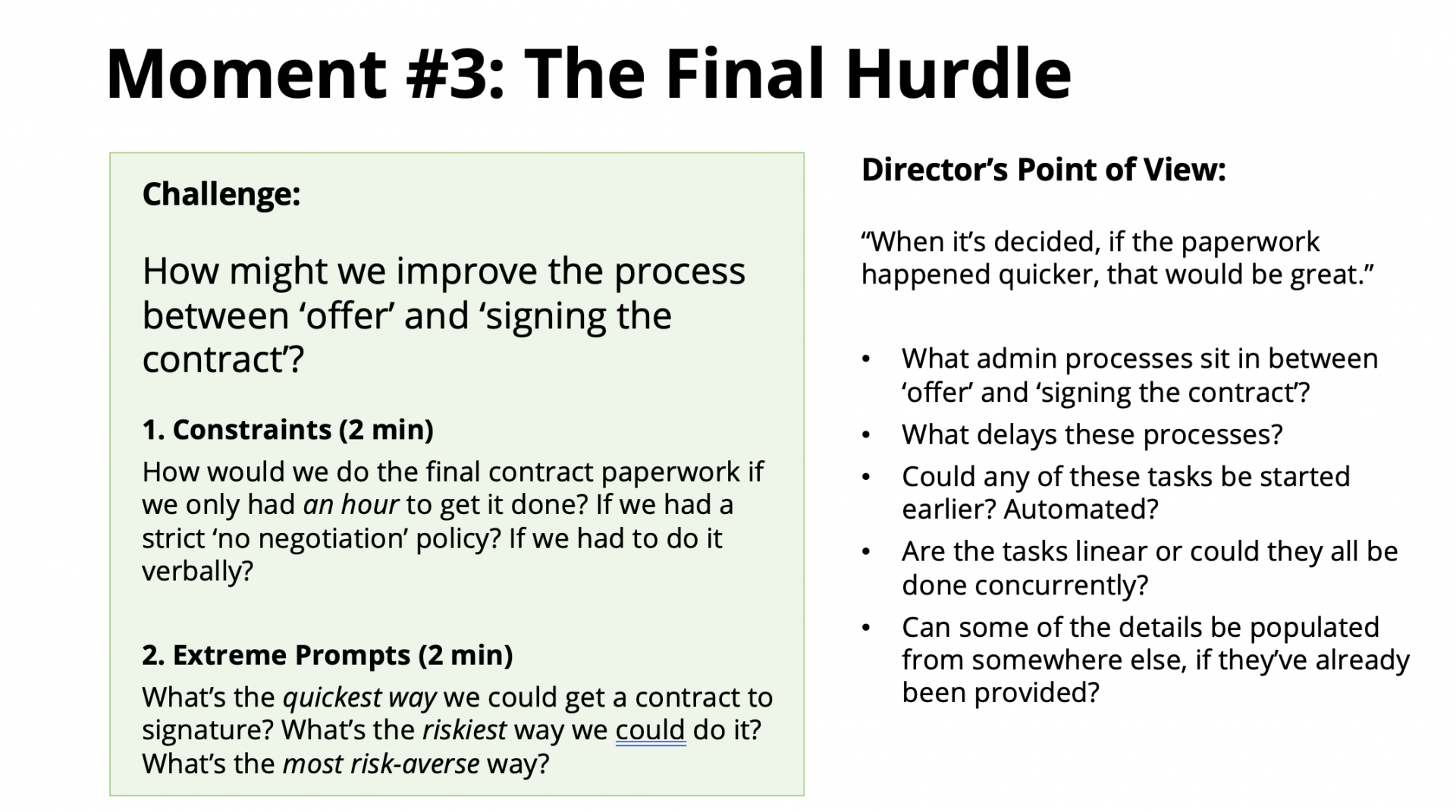First, we mapped the current state journey for the customer, detailing what they were ‘doing, thinking and feeling’ at each stage of the journey and selecting key moments for re-design.


The Department for Trade and Investment (DTI) enables economic growth in South Australia by attracting investment, increasing exports, building global reputation and removing barriers to business.
They are responsible for driving business investment in the state across all industries, and for facilitating trade in all goods and services both interstate and internationally.
DTI’s portfolio of work requires the department to build relationships quickly and understand and work within multiple complex processes. The broad scope and complexity of the department has led to inefficiencies in particular parts of the business.
DTI wanted to improve on these inefficiencies to better deliver for the state and its customers. After attempting traditional process improvement with limited success, DTI wanted to explore a service design approach to re-designing internal staff services and processes.

Escient appreciated the multi-faceted, complex nature of the DTI business. It was important for us to understand how the business operated so that we could focus on what really mattered. After working with a cross-section of stakeholders we agreed with DTI to target two areas for re-design:
These areas would deliver the greatest value and serve as template to address future process improvement.
Escient proposed a service design approach to both challenges. By taking this approach we would be able to reorganise DTI’s people, technology and processes to directly improve the employee and customer experience. This was a more holistic approach, but one we felt would be more effective for the challenges presented.
First, we mapped the current state journey for the customer, detailing what they were ‘doing, thinking and feeling’ at each stage of the journey and selecting key moments for re-design.

We prompted innovative thinking from both staff and the service provision teams about how things could get better. Our methods enabled the team to think beyond obvious solutions to look at how the entire service could be re-imagined, rather than fixing bits and pieces.

We then mapped an ideal future state journey and from this created the service blueprint. We prioritised key moments in the service, based on what the customer wanted most, rather than what the service provider thought was most important. This gave an ideal target state for each challenge, while mapping out the technical, process and organisational solutions required to get there.

The culmination of the work was an Action Plan with a suite of recommended actions for DTI to consider for implementation. DTI adopted the Action Plan recommendations into their Business Improvement Framework, bringing them into their forward program of work. This framework guides the departmental approach to change and improvement.
By engaging Escient, DTI were able to develop a clear path to improving two complex processes, but more importantly the recommendations would simplify complexity for the organisation more broadly and position them to deal with similar changes in the future.